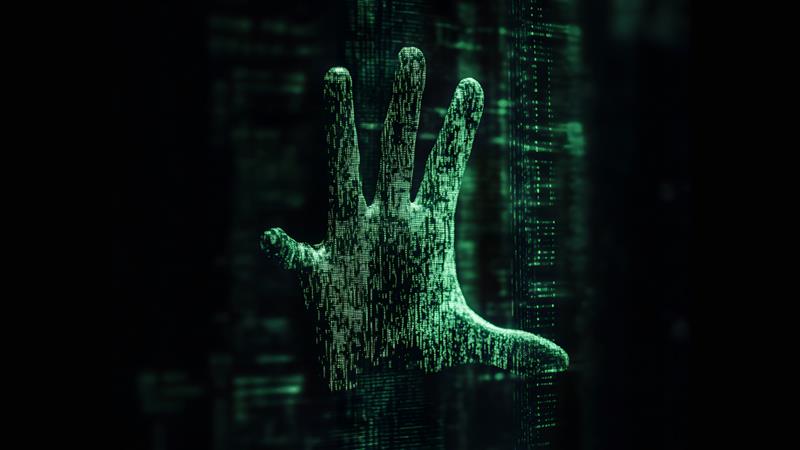
Since June 12, cyberwarfare between Israel and Iran in the Middle East took a more aggressive turn, escalating into relentless digital assaults from both sides on government networks and infrastructure. The world is witnessing what some is calling the Israel Iran WW3 digital war.
Iran and Israel are unleashing the world’s first full-scale cyberwar, with Russia and China observing the chaos. Moscow with military alliances, Beijing with economic clout, and the Israel Iran WW3 just around the corner, igniting the very last fuse before taking the Middle East into a full-scale battleground for global dominance.
Iranian cybersecurity and Israeli offensive cyberoperations are deepening day after day, turning the region that’s been crippled by war for a decade, turning it into a cyberwarfare high-tech ground.
The speed of this cyber war proves how distance no longer separates states from war, considering Israel’s Prime Minister, Benjamin Netanyahu’s 20-year fixation to attack the Iranian Republic, expanding the war into the cybersecurity battlefield.
Following Israel’s attack on Iran on June 12, Tehran called for persistent cyberattack on Israel in retaliatory move, including intrusions into Israeli government networks and critical infrastructure.
On Wednesday, June 18, Iran deliberately slowed its own internet access to block further Israeli cyber operations, with Tehran revealing that it’s a “temporary, targeted, and controlled” defense measure “to ward off cyber-attacks,” according to the spokesperson of the Iranian Government, and the Iranian Cyber Police, Fatemeh Mohajerani.
These sophisticated activities complete the traditional military engagements, introducing a new era where Iran threats to Israel and its infrastructure are conventional. The expanding extent of these cyber wars is accompanied by bigger geopolitics between world powers like Russia and China, who approach the region sequentially treating it in opposite but commonly diverging ways.
Iran and Israel Distance Matters Not with Cyberattacks
Iran cyberattacks Israel have increased with the latest region tensions, embodying the principle that the physical border is useless in cyber warfare. Cybersecurity firm Radware indicated a 700% increase in cyberattack against Israel from June 12, following Israeli military strikes on Iranian entities.
Retaliatory activities include crippling distributed denial-of-service (DDoS) attacks, data breaches, and malware infection against Israeli financial, governmental, and infrastructure systems.
The Iranian government’s response includes a plethora of measures, such as reducing civilian internet speeds and threatening to disconnect from the global internet entirely. Demonstrating how Iran is holding Israel’s grip not only via outside attack but even to weaken information flow within.
Tehran also demanded from its citizens to uninstall Zuckerberg’s WhatsApp from their devices, claiming the messaging platform can be used as spying tool for the Israeli and US governmental agencies. It is worth noting that Iran did not block other prominent messaging applications such as Telegram.
Tehran’s decision around Zuck’s WhatsApp most likely emanates from past reports alleging Meta’s messaging platform shared user data with Israeli military intelligence – but no direct evidence confirms this.
According to Meta’s transparency reports, Israel has indeed legally requested data but claims of direct IDF access to this data remains unverified amid the Israeli government digital surveillance conduct, highlighted throughout the past two years.
Tel Aviv, in parallel, also conducted Israeli cyberattack on Iran operations to deal with threats to its key infrastructure.
The tit-for-tat cyberwar is a big part of the bigger Israel Iran WW3 scenario, where the virtual battlefield complements dynamic military activities, raising escalatory risks.
Russia and China, Strategic Players
Of the Israel Iran WW3 cyber war, US global rivals are mere two bystanders of this fight: Russia and China. Observing the chaos – and American tactics – in this fight, Iran’s BRICS’ partners could be seeking to entrench influence, without direct confrontation.
Russia prioritizes military and energy dominance, as seen in its efforts to maintain Syrian airbases even after the fall of the Bashar’s Assad regime, and Gulf state alliance. Experts believe that Russia is backing Iran’s drones’ program.
China, on the other hand, pre-dominantly opts for economic conquest, absorbing a whopping 40% of Gulf oil exports and financing infrastructure via its Belt and Road Initiative (BRI).
Iraqi analyst Baher Mardan characterizes this as a “hidden alliance” where Russia leads with guns and China applies economic pressure on BRICS’ adversaries.
“The current relations are based on a hidden alliance while relying on a foundation of cooperation and strategic partnership out in the open,” Mardan says.
The “Marine Security Belt 2024” drill within the Gulf of Oman brought Iran, Russia, and China closer as regional security allies. As members of BRICS, their coordination extends beyond navigational coordination to cybersecurity, via the BRICS Working Group on Information and Communications Technology (ICT).
This includes the sharing of surveillance, AI, and cyber tools particularly from China and Russia with Iran and enhancing Iran cybersecurity seen in its digital warfare against Israel. This signals a proceeded joint effort to resist US and allied cyber dominance.
While Iran cyberattacks Israel and vice versa, in addition to other similar malicious internet-based activities becoming more prevalent, the Middle East is a focal point within the greater Israel Iran WW3 dynamic. The intersection of traditional warfare with cyberwarfare and geopolitics puts this region at the center of global stability.
Their relationship has an impact on Iran, where Russia provides military and diplomatic backing, while China props up Iran’s economy, giving Western sanctions-proof trade and advanced cyber shields.
Despite Western sanctions, this works for the BRICS alliance in the face of the regional war drivers, Israel and US, as seen in their hidden-in-the-shadows support during the Israel Iran cyberattack operations.
Inside Telecom provides you with an extensive list of content covering all aspects of the tech industry. Keep an eye on our Cybersecurity sections to stay informed and up-to-date with our daily articles.